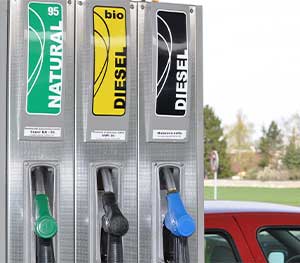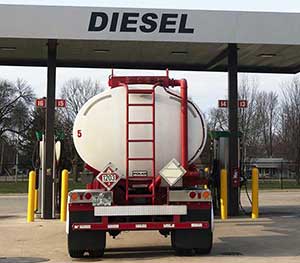What are the disadvantages of using diesel fuel?
Large amounts of air pollutants, such as sulfur and solid carbon particles, are produced by diesel fuel, especially traditionally. To reduce greenhouse gas emissions, additional filtration steps and emission control mechanisms are implemented, which can turn it into a better fuel. Also, diesel fuel can produce more carbon dioxide than gasoline per unit.
Diesel fuel is produced in several grades, such as:
Light, medium and medium distillations for high-speed engines with frequent and extensive changes in load and speed, such as: Trucks and cars
Heavy distillation for medium speed motors with constant speed loading, such as: Trains, ships and fixed engines

Diesel fuel

Diesel fuel
The performance of diesel fuels is measured according to criteria that include:
Cetane number (a criterion for ease of ignition), ease of volatility and sulfur content. The highest grades have the most volatility for car and truck engines, and the lowest grades have the least volatility for low-speed engines, leaving the most carbon residue and usually producing the most sulfur. One of the most important components of diesel pollutants is sulfur and therefore it is closely monitored
Diesel fuel is less flammable than gasoline. If this fuel is spilled on the road, due to the slow evaporation as well as the evaporation of light components, a greasy stain will remain on the road, which will reduce the adhesion of the tires and the road, resulting in slip hazards for vehicles.
